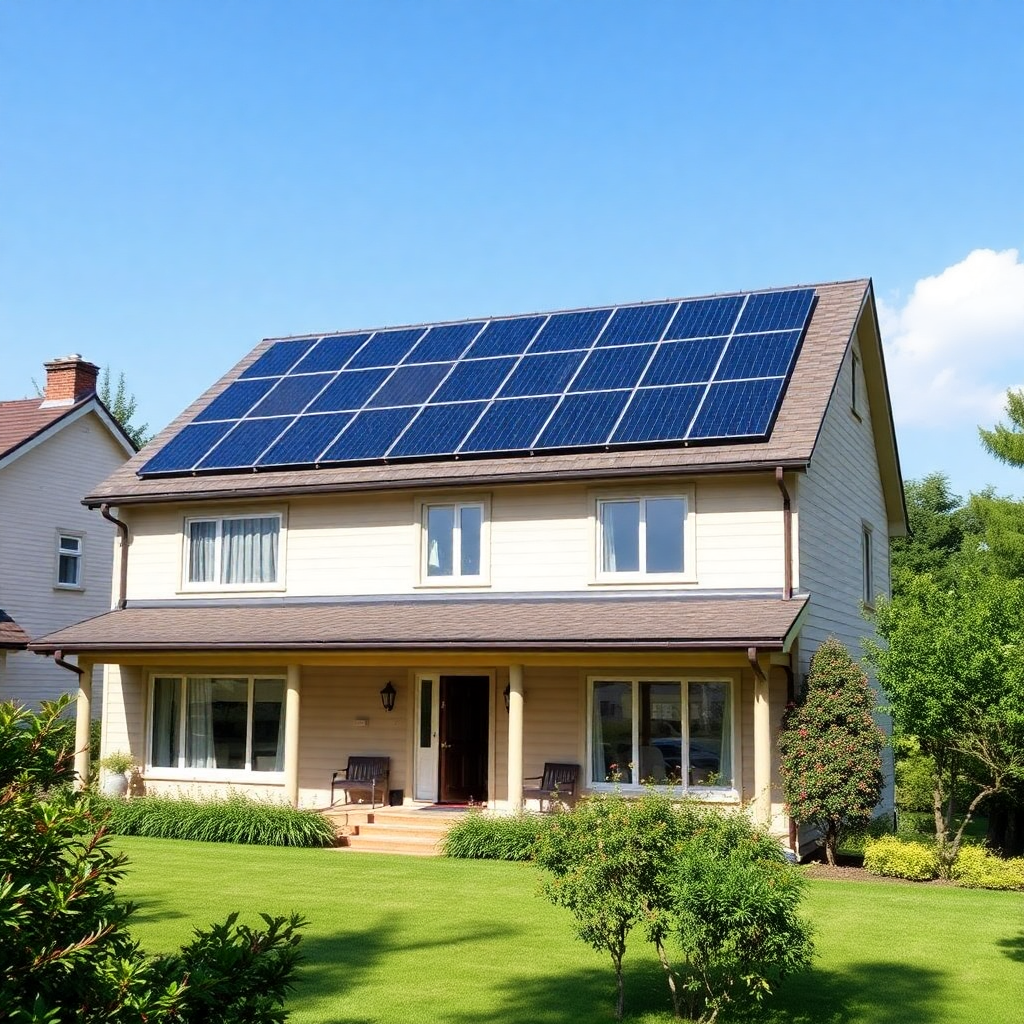When choosing solar panels, you can start from the following aspects to ensure that you select a product with excellent performance and suitable for yourself:
First, efficiency and performance
Conversion efficiency
Conversion efficiency is a key indicator for measuring the performance of solar panels. High-efficiency solar panels can generate more electricity in the same area. Generally speaking, the conversion efficiency of monocrystalline silicon solar panels is relatively high, reaching 20% to 24%, while that of polycrystalline silicon and amorphous silicon is usually below 15%.
When making a purchase, priority should be given to products with high conversion efficiency, but the cost budget should also be taken into account, as high-efficiency solar panels are often more expensive.
Temperature coefficient
High temperatures will reduce the power generation efficiency of solar panels. Therefore, choosing solar panels with a low temperature coefficient can maintain better performance at high temperatures.
Second, durability and quality
Material quality:
The material of solar panels determines their performance and lifespan. The manufacturing process of monocrystalline silicon solar panels is mature, with a high conversion rate and long service life, but the price is relatively high. Polycrystalline silicon solar panels have a relatively low cost but a slightly lower conversion efficiency, making them suitable for situations with limited budgets. Amorphous silicon solar panels are suitable for flexible applications, but they may be slightly inferior to the former two in terms of conversion efficiency and stability.
The material of solar panels can be initially judged by observing their appearance. For instance, the four corners of monocrystalline silicon solar panels have cut corners, mostly presenting an arc shape, being bluish-gray in color, and having a relatively uniform texture. The four corners of polycrystalline silicon are all square corners, and its surface is mostly grayish-white with impurities.
Durability and quality assurance:
A good solar panel should be able to operate stably under various harsh weather conditions, such as wind resistance, rain protection, snow resistance, frost resistance, and UV resistance.
Choose a brand that offers long-term warranty services, including product warranties and power guarantees. The general product warranty period is about 10 years, and the power guarantee period is 25 to 30 years.
Well-known brands usually have more rigorous product testing and quality control systems, as well as more comprehensive after-sales services.
Third, size and power
Panel size:
The size of the panel directly affects the output power and application effect of the solar panel. The larger the area, the more sunlight it receives and the greater the power generation. However, it is not a linear relationship. The appropriate size should be selected based on actual needs and budget.
When the installation space is limited, a trade-off needs to be made between the size and quantity of photovoltaic panels. Larger photovoltaic panels may require more materials and supporting structures, thereby increasing installation and maintenance costs.
Power selection:
The power of solar panels is usually expressed in watts (Wp), and a power correction factor needs to be considered to correct the power output under different conditions.
Choose the appropriate power according to your own electricity needs. For example, small electrical appliances such as mobile phones generally require a power of 5W to 20W. Large electrical appliances such as vehicle-mounted cranes require higher power.
Fourth, safety and environmental protection
Security:
Ensure that solar panels comply with relevant international and local electrical safety standards and regulations.
When making a purchase, pay attention to the safety performance of components such as connectors and junction boxes, including protection level, water resistance, high-temperature resistance, and corrosion resistance.
Environmental friendliness:
Choose solar panels that take environmental protection into account during the manufacturing process and are easy to recycle and handle.
Fifth, other precautions
Brand and Reputation
Choosing well-known brands with a good market reputation can reduce purchase risks and provide more reliable product guarantees.
Price and cost performance:
Choose power generation panels with good quality and high conversion efficiency within an appropriate price range to maximize cost performance.
Compare the prices and performance of different brands and models of solar panels, taking into account the ratio between the price and the power output.
Installation and Service
Correct installation and regular maintenance can extend the service life of solar panels. Choose brands or merchants that offer high-quality installation and after-sales services.
Sixth, regional adaptability
Sunny area
In sunny regions, such as the eastern and western parts of our country, polycrystalline silicon solar cells are a good choice. Its production process is relatively simple, its price is lower than that of monocrystalline silicon cells, and its conversion efficiency has also been continuously improving in recent years.
Areas with more rainy days:
In the southern regions where there are many rainy days and relatively insufficient sunlight, monocrystalline silicon solar cells are more suitable. Because the electrical performance parameters of monocrystalline silicon cells are relatively stable.
Indoor or poorly lit environments:
For situations where indoor sunlight is weak, amorphous silicon solar cells are a better choice. Amorphous silicon cells have relatively low requirements for solar light conditions and are suitable for use in environments with insufficient light.
In conclusion, when choosing solar panels, it is necessary to comprehensively consider multiple aspects such as efficiency and performance, durability and quality, size and power, safety and environmental protection, brand and reputation, price and cost-effectiveness, as well as regional adaptability. By carefully comparing and evaluating different products, choose the solar panel that suits you best.


